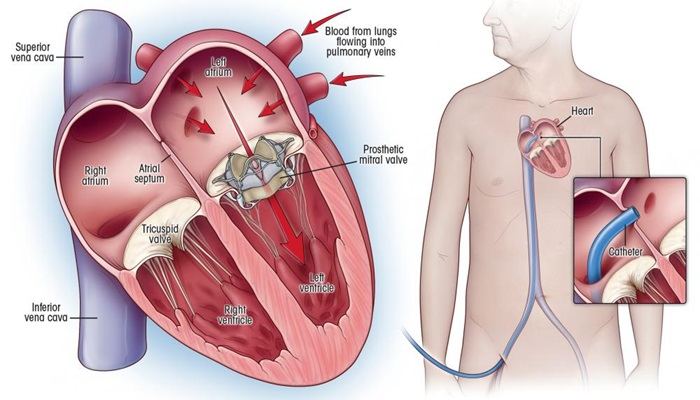Aortic valve leak, also known as aortic regurgitation, is a condition where the aortic valve does not close properly, allowing blood to flow back into the heart instead of moving forward into the aorta. This condition can lead to various complications, including heart failure, arrhythmias, and even sudden cardiac death if left untreated. Understanding how long individuals can live with this condition is crucial for patients and their families. This article aims to provide a detailed overview of life expectancy in patients with aortic valve leak, considering various factors such as age, severity of the leak, treatment options, and overall health.
Factors Influencing Life Expectancy
Several factors influence how long someone can live with an aortic valve leak:
Severity of the Leak: The degree to which the valve leaks plays a significant role in determining life expectancy. Mild cases may not significantly impact life expectancy, while severe cases can lead to serious complications.
Age of the Patient: Age is a critical factor. Younger patients generally have better outcomes compared to older adults. For instance, patients under 65 years old may have a median survival time significantly longer than those over 75.
Overall Health: The presence of other medical conditions such as diabetes, hypertension, or prior heart disease can affect life expectancy. Patients in better overall health tend to have better outcomes.
Timeliness of Treatment: Early diagnosis and timely intervention are crucial. Patients who undergo surgical intervention before significant heart damage occurs tend to have better survival rates.
Survival Statistics
Untreated Aortic Regurgitation:
Patients with untreated severe aortic regurgitation face grim statistics.
Approximately 75% of these patients may die within three years after the onset of symptoms such as shortness of breath or fatigue.
Surgical Intervention:
Surgical options like aortic valve replacement (AVR) significantly improve life expectancy. Studies indicate that post-operative survival rates for low-risk patients can be as high as 93% after five years and close to 90% after eight years.
For example, median survival times post-surgery vary by age group:
Ages 60-64: Approximately 16.2 years
Ages 65-74: About 10.9 years
Ages 75+: Around 6.1 years.
Long-term Outcomes:
A study indicated that patients aged 65 or younger could expect an average post-operative survival of about 16 years, while those over 75 might see survival rates drop to around six or seven years.
Treatment Options
Surgical Aortic Valve Replacement (SAVR)
SAVR is often recommended for patients with severe aortic regurgitation. The procedure involves replacing the damaged valve with either a mechanical or bioprosthetic valve.
Mechanical Valves: These valves are durable and can last many years but require lifelong anticoagulation therapy to prevent blood clots.
Bioprosthetic Valves: Made from animal tissue, these valves typically last around 10-15 years but do not require long-term blood thinners.
Transcatheter Aortic Valve Replacement (TAVR)
TAVR is a less invasive option suitable for older or higher-risk patients. This procedure has shown excellent outcomes and is associated with shorter recovery times compared to traditional surgery.
Monitoring And Follow-Up
Regular follow-up care is essential for individuals with aortic valve leak:
Echocardiograms: These imaging tests help monitor the heart’s function and the severity of the leak over time.
Symptom Management: Patients should report any new symptoms such as increased shortness of breath or fatigue to their healthcare provider promptly.
Quality of Life Considerations
Post-treatment quality of life can be comparable to that of age-matched individuals without heart disease. Many patients experience significant improvements in symptoms and overall well-being after surgical intervention.
Conclusion
Living with an aortic valve leak can vary widely based on individual circumstances. While untreated severe cases pose significant risks, timely surgical interventions can dramatically improve both life expectancy and quality of life. With advancements in surgical techniques and careful monitoring, many patients can expect favorable outcomes even in older age groups.
In summary:
Untreated severe aortic regurgitation has poor prognosis.
Surgical options significantly improve survival rates.
Regular monitoring is essential for managing health post-treatment.
Understanding these factors empowers patients and families to make informed decisions about treatment options and lifestyle changes that can enhance longevity and quality of life in the face of this serious condition.
Related topics:


